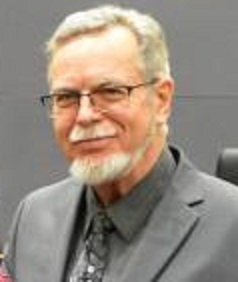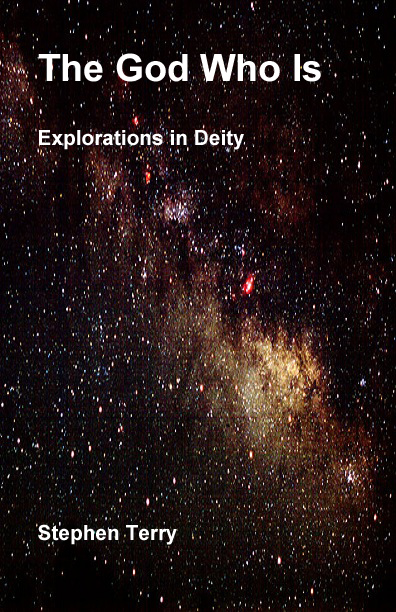
Stephen
Terry, Director

The
Results of Stewardship
Commentary
for the March 31, 2018 Sabbath School Lesson
 “Then Jacob made a vow, saying, ‘If God
will be with me and will watch over me on this journey I am taking and will
give me food to eat and clothes to wear so that I return safely to my father’s
household, then the Lord will be my God.’” Genesis 28:20-21, NIV
“Then Jacob made a vow, saying, ‘If God
will be with me and will watch over me on this journey I am taking and will
give me food to eat and clothes to wear so that I return safely to my father’s
household, then the Lord will be my God.’” Genesis 28:20-21, NIV
I grew up in perhaps one of the most beautiful places on
Earth. Surrounded by the Cascade and Olympic Mountains and living near the
shore of the Puget Sound, I spent much of my youth fishing and exploring the
various coves and shoals of that marine paradise. Crabs, starfish, and sea
cucumbers provided endless hours of fascination as I studied their activities.
The soles of my feet grew calloused from running barefoot through a natural
wonderland. I picked berries beside hidden creeks, and hunted frogs and snails
when the berries were not yet ripe. My great grandmother had a small farm, and
she lovingly taught me how to care for her vegetable garden and her large
raspberry field. To this day, I have raspberry plants that not only are a
delight to eat, but also remind me of those pleasant days spent tending her
raspberry bushes. She, too, had a creek on her acreage that provided water for
all of her gardens and the small number of livestock she raised. I often was
assigned the task of cleaning the filters in the sluice box the creek fed into.
Those filters kept the dirt from the water lines so that the water flowed
freely throughout the farm and the faucets did not become jammed with sediment.
There was no more pleasant job than cleaning the sluice box on a hot summer
day. The creek water was delightfully chilled in spite of the summer sun.
Not having traveled much, I naively thought that every
place was just as beautiful as where I grew up. So when home life became
difficult, I had no problem setting out on my own when I graduated high school.
I was not raised in a Christian home. My parents attended no church, and
alcohol poisoned our family with dysfunctionality. However, as I grew older in
my teen years, I discovered the God who was behind the beauty of the Creation
that surrounded me, and I hoped to respond to His call to a better life. With growing
abuse at home, I saw enlistment in the Army as a way out of the escalating
troubles. Like Jacob, who had also left home to avoid conflict, I walked away
from the beautiful Puget Sound, not knowing what would be my future in a world
largely unknown to me. Little did I know that I would never find my way back to
live in that comparative Eden again. But while paradise could not come with me,
its Creator could.
I found myself at an Army base in a barren, desert land
outside of El Paso, Texas. The difference could not have been more dramatic.
Faced with that unfamiliar environment and Drill Instructors screaming and
making every effort to break down the new recruits, I needed to rapidly find a
focus for who I was and who I wanted to be. Much like Jacob, I decided to
commit my life more fully to God. I told God as long as I was in the military,
I would honor Him and share His grace with others. I also began to pay tithe as
a pledge on that commitment. Although I was no saint, and to this day would hesitate
to call myself one, I believe because of that commitment, I had the opportunity
to see and be a part of many miracles over the years. But what is more, I have
had the privilege of playing a part in helping several others to find the
blessings of a relationship with Jesus Christ. I hope to stand beside the River
of Life under the Tree of Life[i] with them one day as we
share the stories of our lives.
At times, others who noticed the contrast between my
life style and that of the military in general would ask me why I was serving
in the Army and not studying for the ministry somewhere. I would always tell
them that it is God’s work and as a faithful steward for that work I trusted
Him to have me where He wants me. Until He showed me otherwise, I would
continue to serve Him where I was. I also said that if God wants me to work for
Him in the military, nothing could prevent that, but if God wanted me to work elsewhere,
the military could not keep me from it. After over six years, including a tour
in Vietnam which saw its own miracles, God revealed just how powerful He was in
that regard. Once the Vietnam War was over and the draft was ended, the Army
became much less tolerant of religion in the ranks. I was especially noticeable
because I was a medic and did not carry a weapon, something that is considered near
treason in the infantry. Never mind that Desmond Doss, who was also a medic and
carried no weapon, had won the Medal of Honor for his service to his fellow
soldiers; his valor was not something that the officers of my unit were willing
to acknowledge. Consequently, my sharing of my faith began to be opposed by
Command, and to make a long story short, I was miraculously discharged as a
conscientious objector. Like I said when God felt it was time for me to leave
the Army, nothing would prevent it, and I was discharged in August of 1975, just
in time to enroll in the theology program at Walla Walla College.
My wife worked on her PHT[ii] while we were there, and
I owe a great deal to her and her family’s support. I have long felt that
pastors, if married, do not minister alone. Instead, they minister as a
pastoral team. Unfortunately, many denominations do not recognize this as they
should, and the wife is often the unsung and unpaid hero in the ministry.
Sadly, too many feel that God cursed women into submission at the Fall recorded in Genesis, chapter three,[iii] and they are determined
to do all in their power to keep her there. I believe that one day they will
answer to God for their cold and hardened hearts for this. It saddens me when
we use our faith as an excuse to oppress others. I don’t understand that kind
of thinking. In any event, I still had much to learn about Christian
stewardship.
Once I graduated and received appointment to a
three-church district in the Mid-West, another challenge developed. We had
settled our family, myself, my wife, and my infant son, into the parsonage
provided by the church, and after a few months there, my wife was diagnosed
with progressive Multiple Sclerosis. We were advised that she would go downhill
rapidly in the high heat and humidity of that region, so I resigned my
pastorate and returned to Eastern Washington where her family lived and the
climate was better for her. It was a time that challenged my faith greatly. I
had made a commitment to God, and it seemed that instead of us working together
to reach the lost, we had been sidelined. It was a time of a lot of prayer and
soul searching. The local conference had no interest in providing me with
employment. The college was harassing me with phone calls regarding student loans
that I could not pay because of being unemployed. I explained my wife’s illness
but they did not care and threatened me with collections and court. In spite of
all of these difficulties, I purposed to remain faithful to my commitment with
God.
The Bible reminded me that Moses had been sidelined for
forty years tending sheep while God prepared the way for him. Jacob also was
sidelined for 21 years caring for sheep and goats before he was able to return
home to the land that had been promised to his grandfather’s descendants. As it
turned out, I eventually found work with the State Department of Social and
Health Services, and I cared for my wife until she passed from her disease
twenty-five years after she was diagnosed. God held my hand through each day
and the challenges taught me a great deal about life. I learned that sometimes
there is little you can do for someone besides remaining beside them when no
one else can be there for them. Stewardship can mean there are more important
things than careers, travel to exotic locales, or financial rewards. We can
have everything figured out about our life goals and an illness or an accident
can lay those plans in the dust in an instant. A faithful steward learns to be
faithful to his Master even when thins do not appear to be going according to
plan. The grateful Master will never overlook that kind of faith. And in my
experience, He will do everything in His power to help us develop the faith
that produces that level of trustworthy commitment. Although I have never been
able to live in the beautiful Puget Sound area again, I believe I have been
well-rewarded with a loving and supportive wife who came into my life at God’s
direction a decade ago, and with her support, I have had the privilege of
touching the lives of thousands around the world with the message of God’s limitless
grace and compassion, just as I hope this commentary is touching yours.
